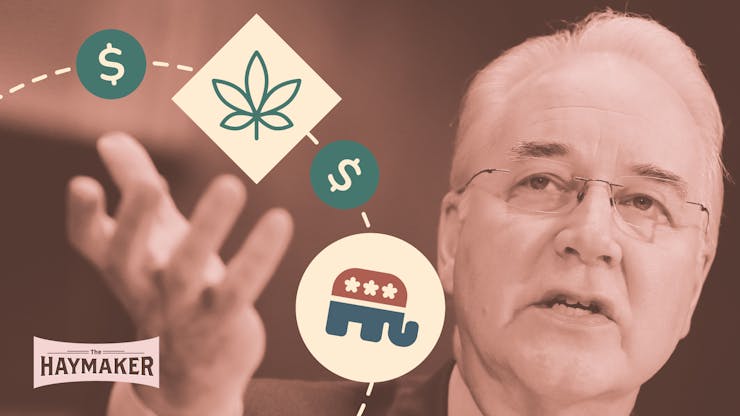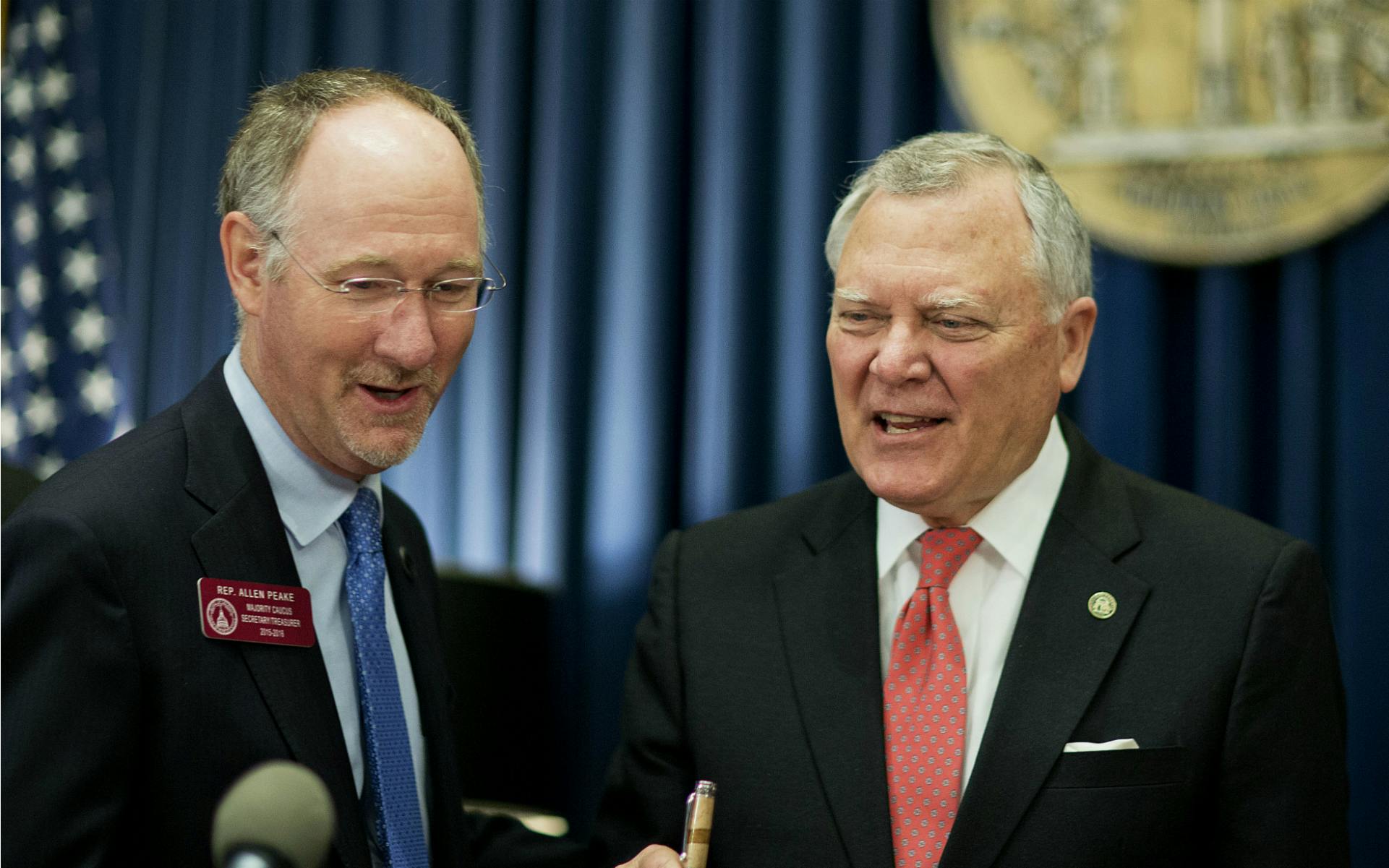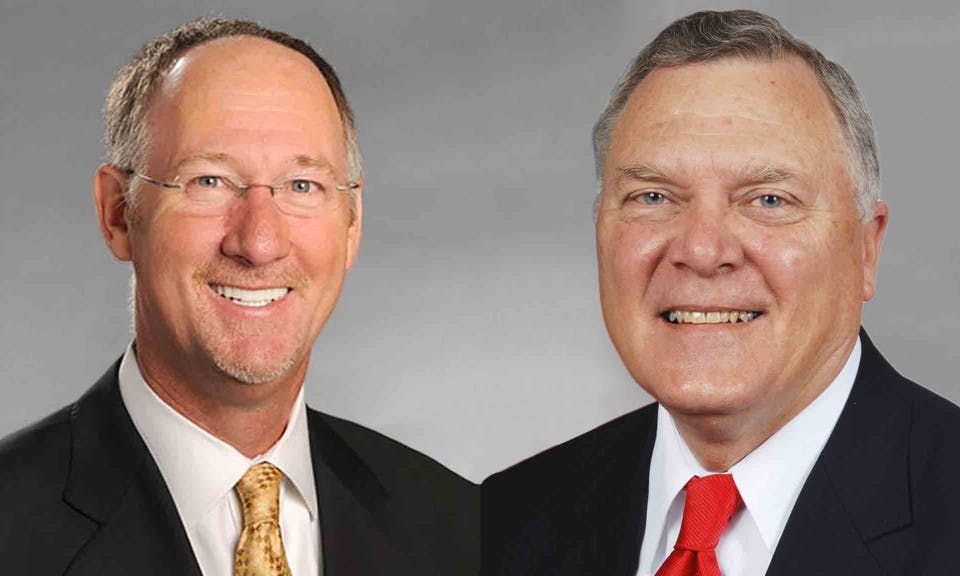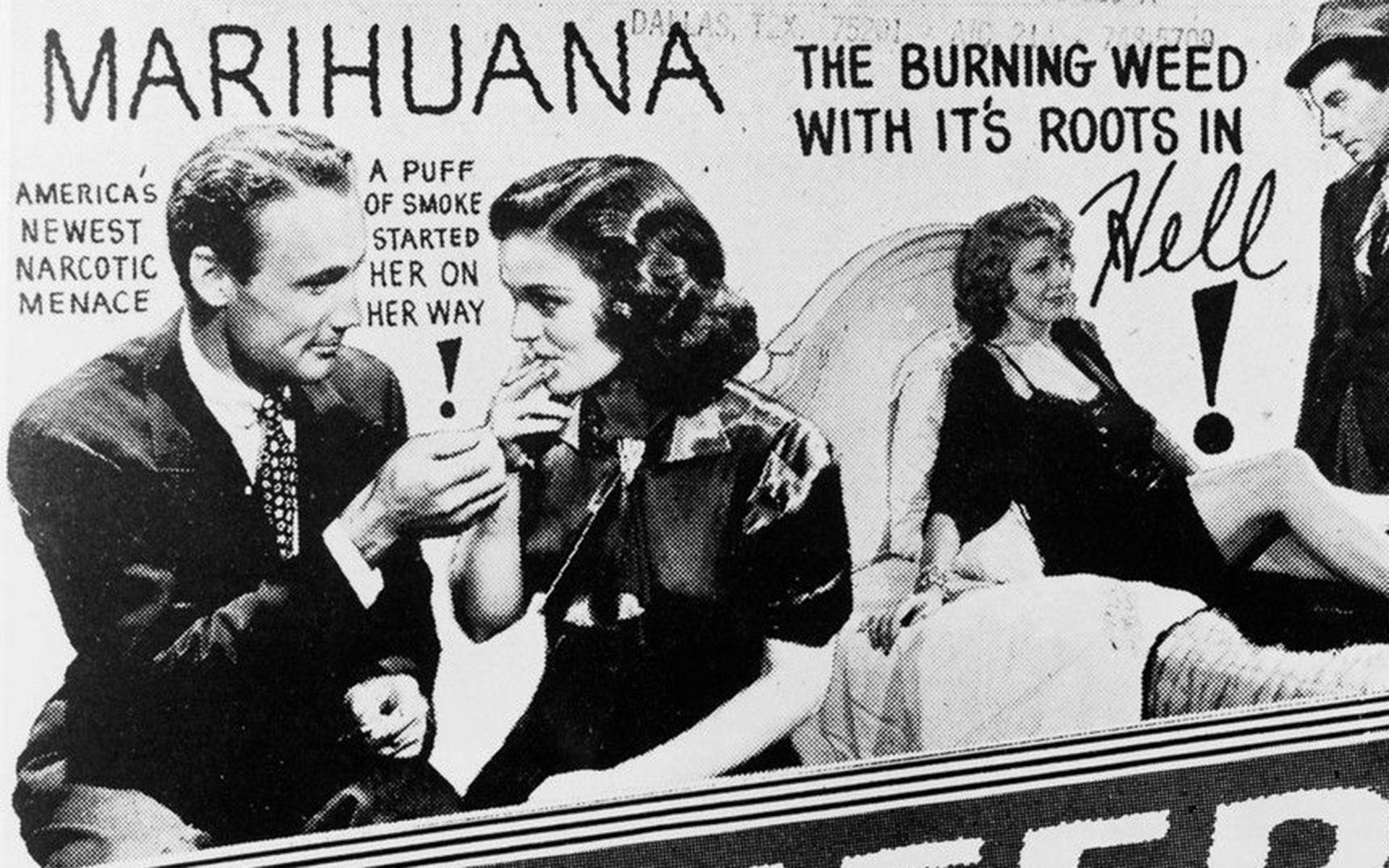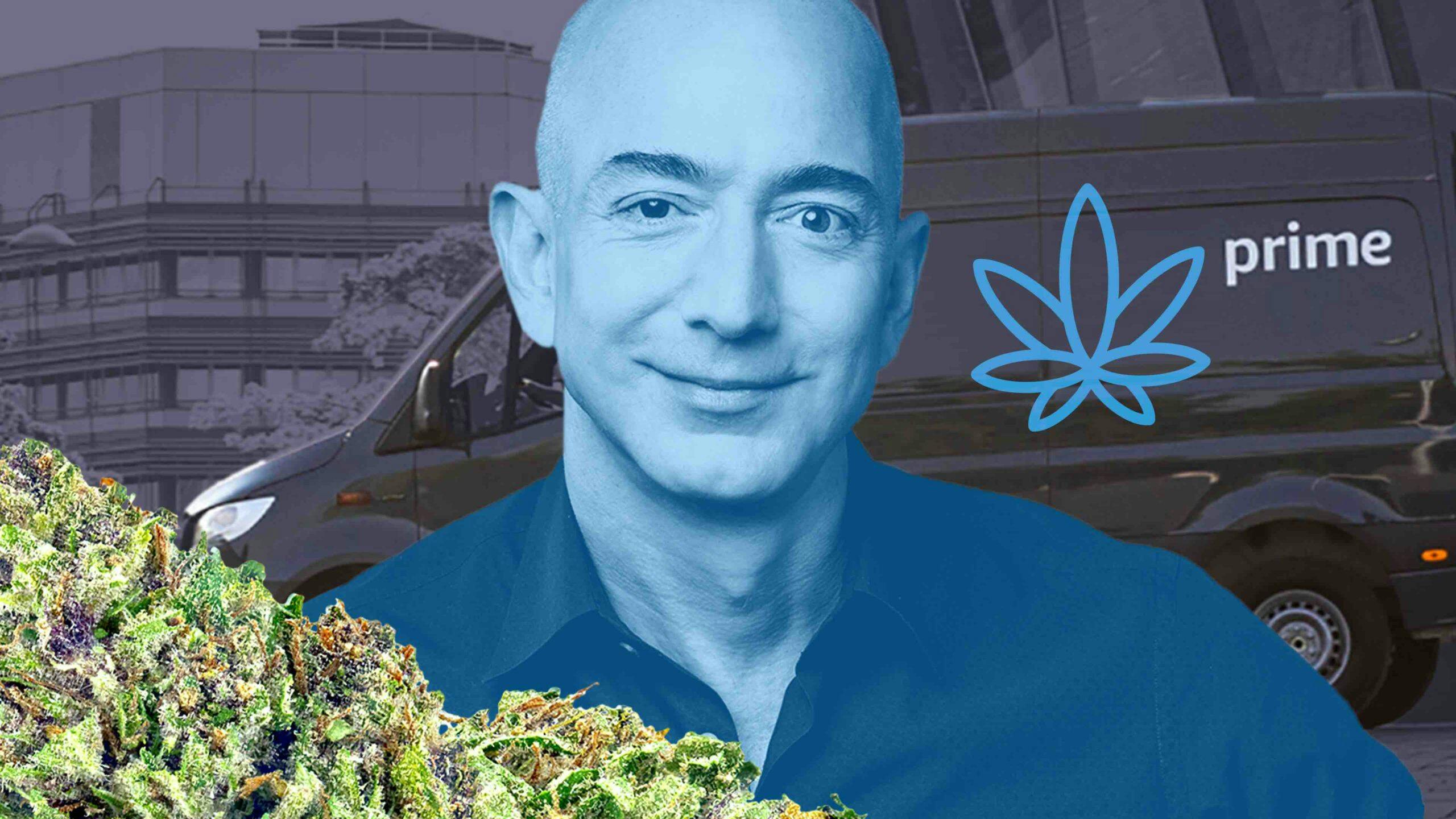The Haymaker is Leafly Senior Editor Bruce Barcott’s opinion column about cannabis politics and culture.
The news that Tom Price, a lifelong prohibitionist, won the cannabis license lottery threw me into a philosophical conundrum last week.

Price is a Georgia Republican who briefly served as Donald Trump’s first health secretary. He lasted just seven months before getting washed out in a scandal. Price was the guy who wasted more than $1 million of taxpayer money hopping private jets and military transports instead of booking Jet Blue like the rest of us.
Prior to his turn on the Trump merry-go-round, Price served in Congress from Georgia’s 6th District, which encompasses Atlanta’s northern suburbs.
During his 12 years on Capitol Hill, Price did nothing to support cannabis legalization.
Tom Price voted six times to kill the critical budget amendment that protects medical marijuana patients.
As Marijuana Moment’s Kyle Jaeger has pointed out, Price voted six times to kill the Congressional budget amendment that protects patients in medical marijuana states. Three times he opposed efforts to allow Veterans Administration doctors to recommend medical marijuana to their patients.
As Trump’s Secretary of Health and Human Services, the nation’s largest public health agency, Price ignored the struggle of America’s millions of medical marijuana patients.
But once he left office—and Georgia opened applications for a handful of lucrative medical marijuana licenses—Tom Price had a change of heart. Or maybe it was a change of wallet. The career prohibitionist joined the board of Botanical Sciences LLC, a company new to the cannabis space that was founded last year by Robin Fowler, head of a chain of Georgia pain clinics with some very mixed Yelp reviews.
Whattaya know? We have a winner
After Price hopped aboard, Botanical happened to win one of six coveted MMJ licenses, beating out 63 other applicants, including the well-established national brand Curaleaf. Botanical’s unexpected win raised some eyebrows—and caught the attention of Curaleaf’s lawyers, who are now disputing the licensing awards, as are more than a dozen other unsuccessful applicants.
Meanwhile, in that same licensing scrum, Georgia’s Access to Medical Cannabis Commission rejected the MMJ application submitted by Allen Peake’s company.
Peake is the former state assembly member who risked his political career, his personal reputation, and his freedom to pass Georgia’s first medical legalization laws. While Tom Price enjoyed the perks of high office and turned a deaf ear to the plight of medical marijuana patients, Allen Peake personally delivered CBD oil to desperate parents whose children were afflicted by seizures. Leafly covered Peake’s courageous workearly and often.
In the end, Tom Price got a cannabis license. Allen Peake did not.
A karmic gut-punch
Does that stink of unfairness and injustice? Absolutely. It makes my stomach turn.
At the same time, I’m wrestling with the long-term ethics and strategy involved here.
Today, Tom Price’s cannabis license feels like a karmic gut-punch. But in the long game of harm reduction and cannabis legalization, it may ultimately pay off for millions of Americans.
Opening minds, gaining allies, changing votes: That’s the grinding day-to-day work of the legalization movement. Turning Tom Price from a prohibitionist into a medical marijuana advocate is what drug policy reformers are fighting for, as much as it may sting right now.
Cannabis faced a similar moment three years ago when John Boehner, the former Republican Speaker of the House and longtime prohibitionist, joined the board of Acreage Holdings. Say what you will about Boehner’s past cannabis voting record—and it was bad—his entry into the cannabis industry was a watershed moment in legalization history. Boehner’s move turned the head of every Republican in America. He forced his former colleagues to think twice about legalization. Was he an opportunist? Sure. But he also opened minds.
One of those minds may have belonged to Tom Price.
Something more is needed
I’m not here to tell you cannabis licenses should be given to rich white guys in order to make Republican prohibitionists feel comfortable with legalization.
In that mix of feelings about Tom Price, there’s a yearning for something from Price himself: atonement.
Price’s license is a reminder that the fight for equity in the cannabis industry must continue with redoubled vigor. We fight for perfect justice and fairness in opportunity, even while knowing we will fall short. We welcome new allies even as our eyes are open to their past sins and failures—because those new allies can help us correct those failures and remedy those harms.
But there is, in that mix of queasy feelings about Tom Price, an urgent demand for something from Price himself. That something is atonement.
When a former prohibitionist—especially one who actively propped up prohibition, the War on Drugs, and mass incarceration—embraces legalization, that embrace should include a public acknowledgement that the harms of the past were exactly that. Harms. This is a bipartisan ask. Whether it’s Tom Price or Joe Biden, there’s a need to say “I was wrong. I am sorry. And I will work to heal the harm I caused.”
Just say ‘I was wrong’
Millions of Americans are in the process of changing their minds about cannabis and our cruel, racist criminalization of the plant. They should be allowed to embrace a more enlightened approach without being shamed or shunned. At the same time, it’s not unreasonable to ask for atonement.
I’ve gone through a version of this myself. I spent years writing a book about my own conversion to the righteous cause of legalization. I have spoken openly about my own past embrace of stereotypes and stigmas. (Subscribe to Leafly’s weekly podcast, The Roll-up, to hear for yourself.) For decades, I was wrong about marijuana. I perpetuated the harm of the War on Drugs, including the racism and mass incarceration. My own enlightenment didn’t wash away my past actions. But I’m acknowledging them and working to make things better.
Tom Price doesn’t have to write a whole book about his change of heart on marijuana. But we do need to hear from him. It’s time to speak, Tom, honestly and openly, about your past position and the process that led you to join the board of Botanical Sciences.
It’s the least you can do. And it must be done.
